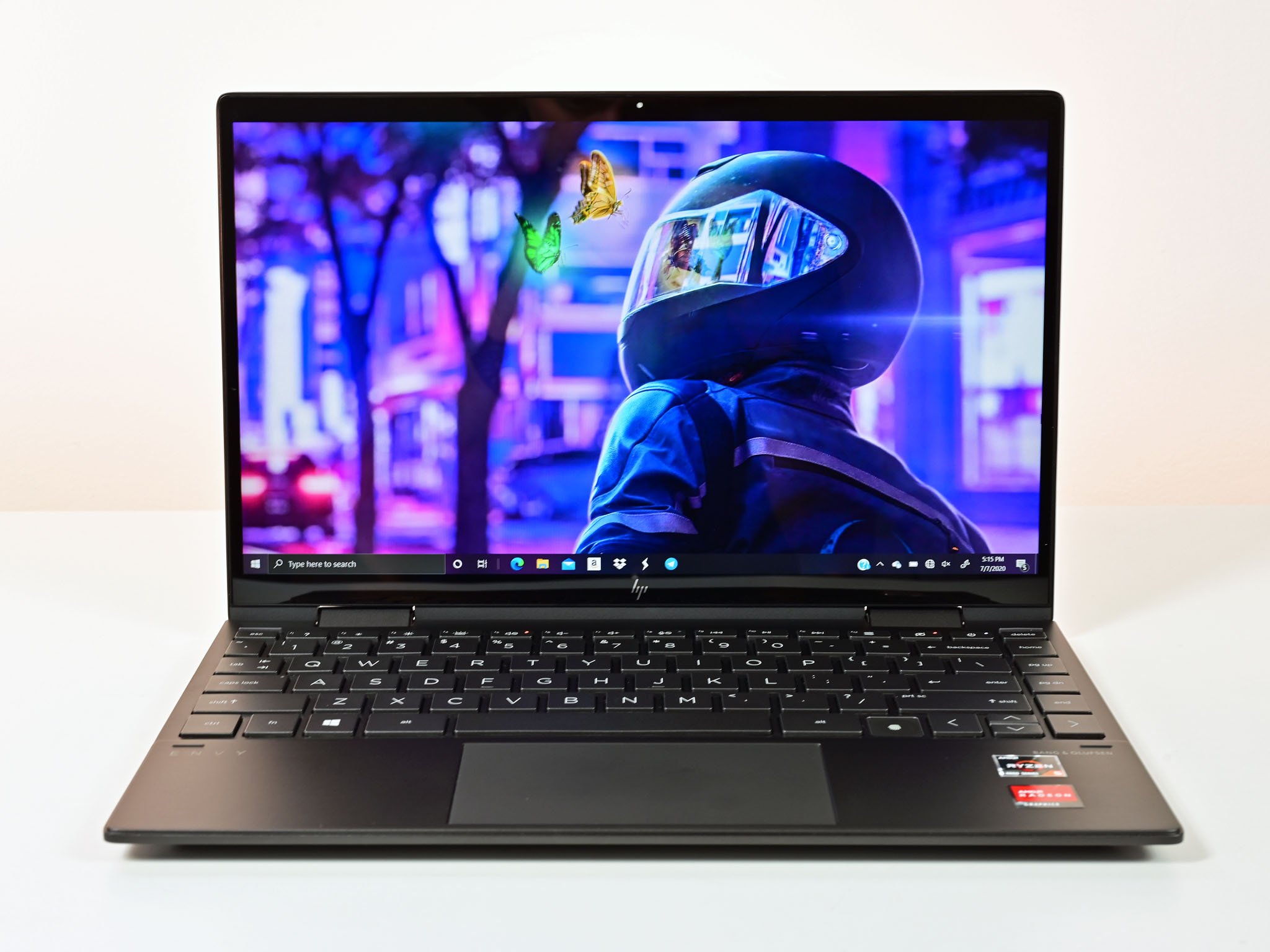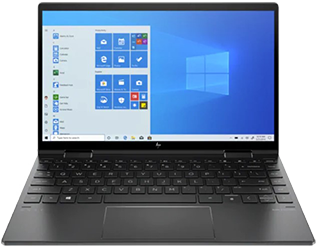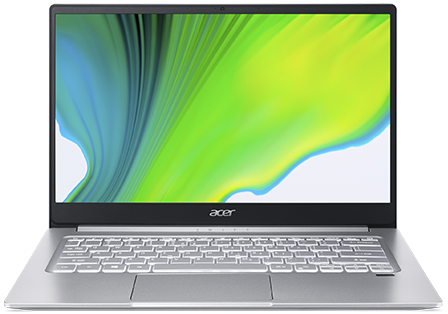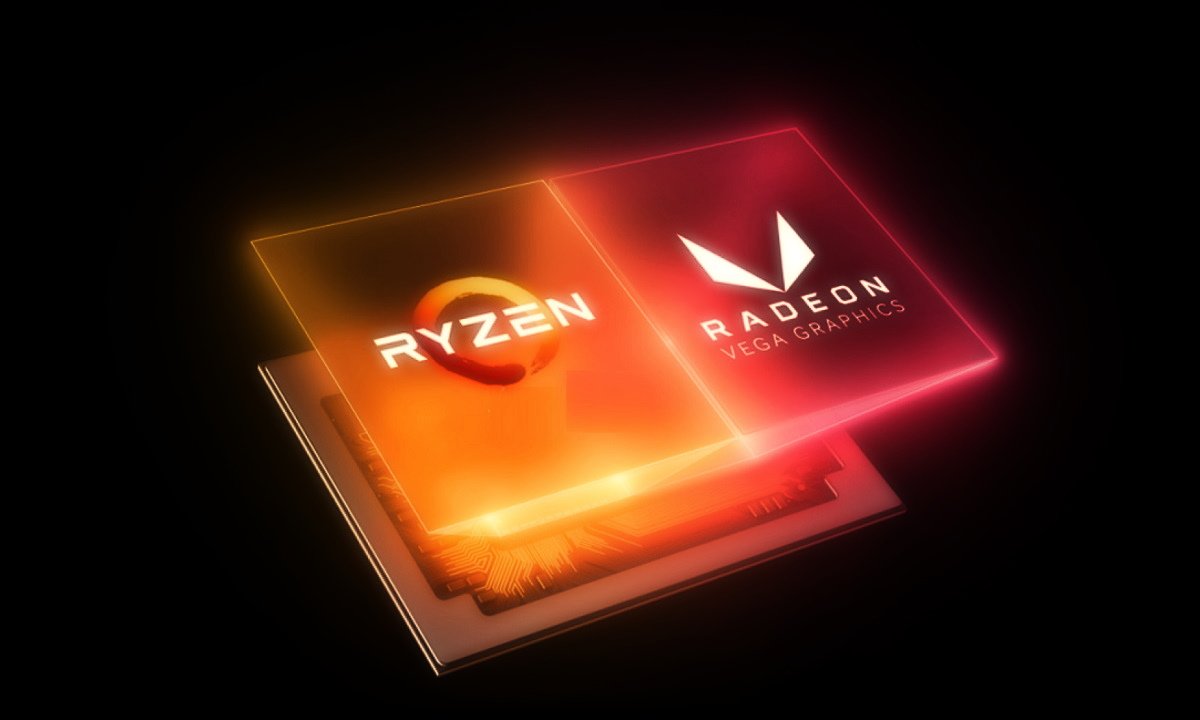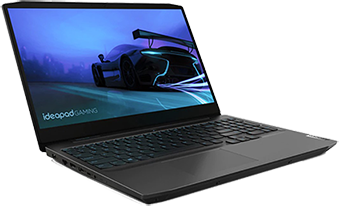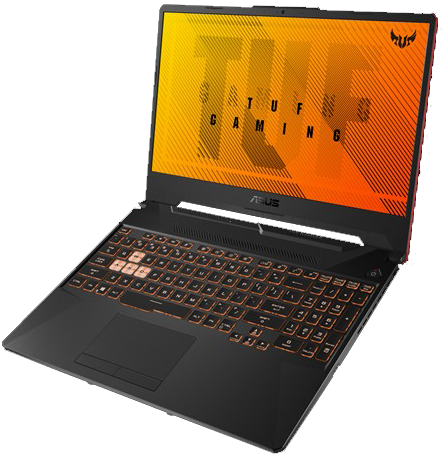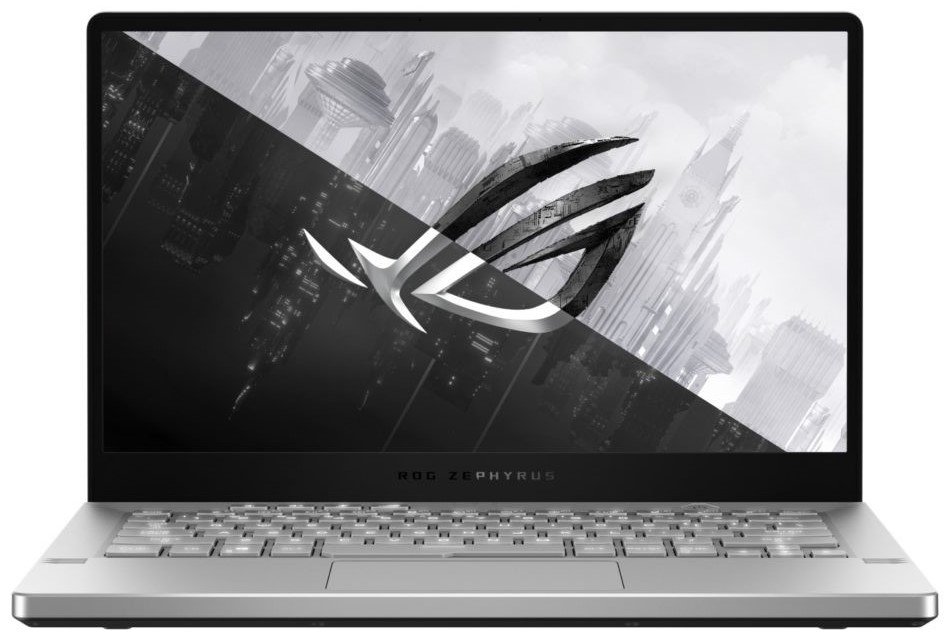How to pick the right AMD Ryzen 4000 mobile CPU
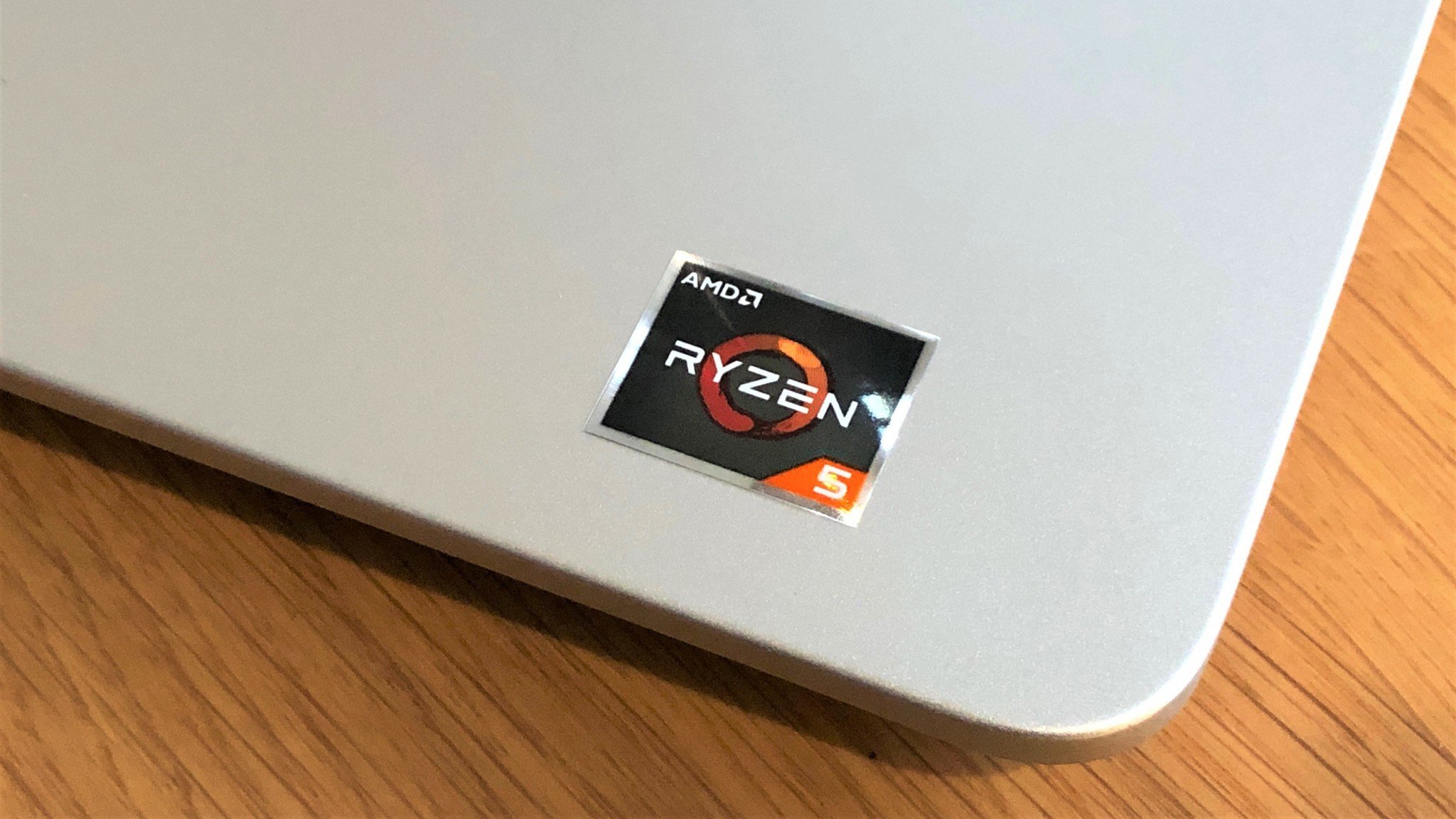
All the latest news, reviews, and guides for Windows and Xbox diehards.
You are now subscribed
Your newsletter sign-up was successful
Revealed in the first quarter of 2020, AMD's Ryzen 4000 mobile lineup of processors (CPU) has found its way into a bunch of our picks for the best Windows laptops. Split into U-series and H-series chips, the former is intended for slim Ultrabooks, while the latter is intended for high-performance gaming and design laptops. There are a lot of different numbers at play here, and it can be confusing when you're shopping for a new laptop that houses one of these CPUs. Let's take a look at what you need to know when picking an AMD Ryzen 4000 mobile CPU. You may also want to check out our list of the very best AMD Ryzen laptops.
AMD Ryzen 4000 U-series mobile CPUs
Just like Intel does with its mobile CPUs, AMD splits its U-series chips into three major categories based on performance. Ryzen 3 is comparable to the Core i3, Ryzen 5 to the Core i5, and Ryzen 7 to the Core i7.
- Ryzen 3 — Up to 4 cores and 8 threads
- Ryzen 5 — Up to 6 cores and 12 threads
- Ryzen 7 — Up to 8 cores and 16 threads
These AMD Ryzen 4000 U-series CPUs are built with a 7nm process and have 15W thermal design power (TDP). Ryzen 3 is reserved for entry-level laptops, Ryzen 5 is best for mid-range laptops, and Ryzen 7 is for premium Ultrabooks that deliver top-shelf performance. These CPUs are not available to purchase individually; if you want to invest in one, you'll have to choose a laptop that employs it. If you are looking for a similar rundown of AMD's desktop CPUs, have a look at our guide to choosing the right desktop Ryzen chip.
AMD Ryzen 3 4000 U-series CPUs
The U-series Ryzen 3 is available in one basic version with a PRO option riding alongside. Budget laptops like Lenovo's IdeaPad Flex 5 14, HP's ENVY x360 13, and the Acer Swift 3 are often configurable with the Ryzen 3 4300U, while the Ryzen 3 PRO 4450U is meant for business laptops like HP's EliteBook line and Lenovo's ThinkPad line. Both options have four cores and integrated Vega graphics with five cores.
The PRO version of the U-series Ryzen 3 is meant for workforces that need extra security, multi-threading, and manageability. For most consumers this chip isn't going to be an option, but it's worth mentioning that it's out there. Here's how the standard Ryzen 3 4300U compares to the Ryzen 3 PRO 4450U.
| CPU | Cores | Threads | Base/Boost clock | Cache | GPU | TDP |
|---|---|---|---|---|---|---|
| Ryzen 3 4300U | 4 | 4 | 2.7GHz (3.7GHz) | 6MB | Vega 5 | 15W |
| Ryzen 3 PRO 4450U | 4 | 8 | 2.5GHz (3.7GHz) | 6MB | Vega 5 | 15W |
Bottom line: The Ryzen 3 U-series mobile CPU is best reserved for productivity work, including word processing, web browsing, video streaming, and messaging apps. It will handle a relatively robust load, but don't expect it to measure up to Ryzen 5 and Ryzen 7 chips. Heavy multitasking will bog it down.
AMD Ryzen 5 4000 U-series CPUs
The Ryzen 5 U-series has three entries, with a standard six-core, six-thread option, a six-core option with 12 threads, and a PRO version with six cores, 12 threads, and the same security and management perks typical for the workforce focus. All options have a 15W TDP that sips power, and all options have six GPU cores for their Vega integrated graphics.
All the latest news, reviews, and guides for Windows and Xbox diehards.
If you're interested in heavier multitasking, the Ryzen 5 4600U's multithreading ability should be attractive, though these CPUs seem to be harder to find than the standard 4500U. Let's take a look at how the three Ryzen 5 4000 U-series CPUs compare.
| CPU | Cores | Threads | Base/Boost clock | Cache | GPU | TDP |
|---|---|---|---|---|---|---|
| Ryzen 5 4500U | 6 | 6 | 2.3GHz (4.0GHz) | 11MB | Vega 6 | 15W |
| Ryzen 5 4600U | 6 | 12 | 2.1GHz (4.0GHz) | 11MB | Vega 6 | 15W |
| Ryzen 5 PRO 4650U | 6 | 12 | 2.1GHz (4.0GHz) | 11MB | Vega 6 | 15W |
Bottom line: AMD Ryzen 5 U-series CPUs can handle quite a bit more than Ryzen 3 counterparts thanks to two extra cores. The extra integrated GPU core will also give it a boost for light gaming. The chips still run at a 15W TDP and are great for anyone who doesn't need the eight-core performance from Ryzen 7 chips.
AMD Ryzen 7 4000 U-series CPUs
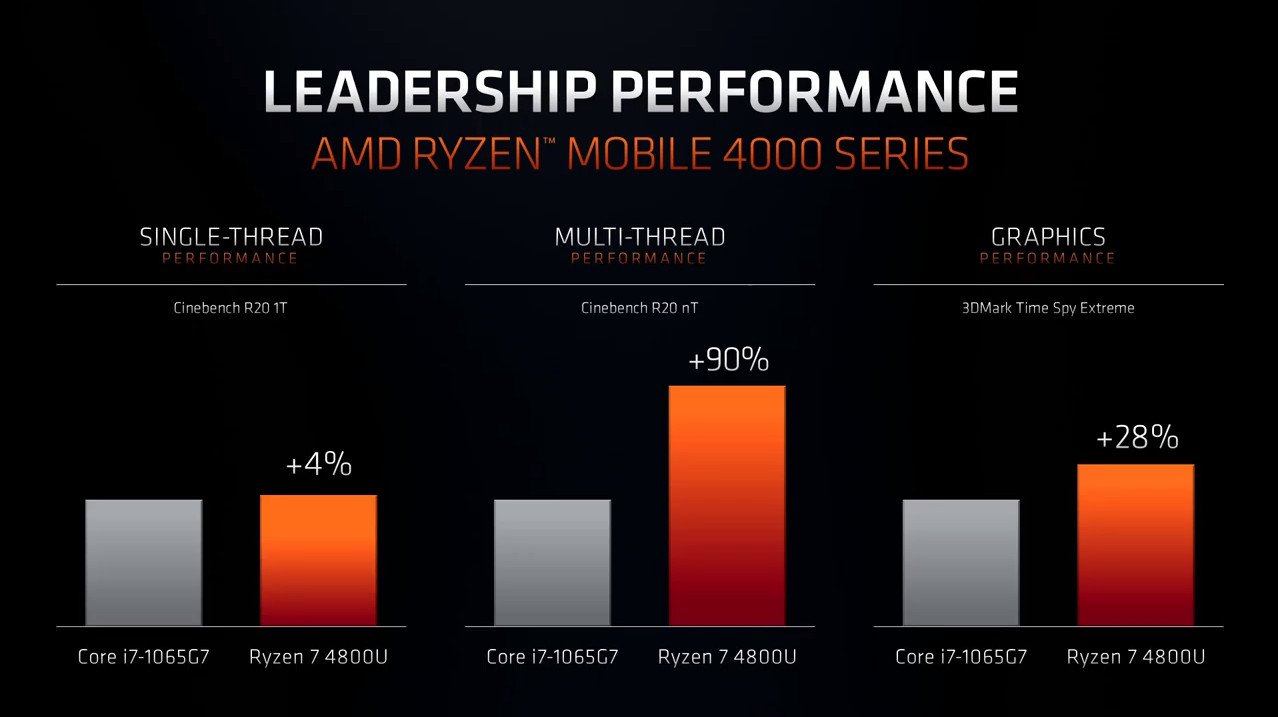
The Ryzen 7 4000 U-series is available in three flavors, with two focused on regular consumers and one PRO option for workforces. The 4700U has eight core and eight threads, while the upgraded 4800U has the same eight cores but 16 threads for multithreading. All still use a 15W TDP for relatively low power consumption, and all will provide an Ultrabook with some serious performance. Like the Ryzen 5 4600U, the Ryzen 7 4800U is much harder to find; most laptops will have the 4700U chip.
Those who want to enjoy heavy multitasking including something like photo editing will love what the Ryzen 7 has to offer. Integrated Vega graphics have seven or eight cores for excellent performance, even for some light gaming. You're going to pay the most here in the U-series lineup, but you will see a noticeable difference thanks to the extra cores.
| CPU | Cores | Threads | Base/Boost clock | Cache | GPU | TDP |
|---|---|---|---|---|---|---|
| Ryzen 7 4700U | 8 | 8 | 2.0GHz (4.1GHz) | 12MB | Vega 7 | 15W |
| Ryzen 7 4800U | 8 | 16 | 1.8GHz (4.2GHz) | 12MB | Vega 8 | 15W |
| Ryzen 7 PRO 4750U | 8 | 16 | 1.7GHz (4.1GHz) | 12MB | Vega 7 | 15W |
Bottom line: Ryzen 7 4000 U-series CPUs deliver outstanding performance in thin and light Ultrabooks. Eight cores, up to 16 threads, and Vega 7 and Vega 8 integrated graphics are the ceiling for AMD's U-series chips. Don't go with anything else if you want the best performance possible before getting into H-series CPUs.
AMD Ryzen 4000 H-series mobile CPUs
AMD's Ryzen H-series processors are made up of 35W and 45W TDP chips intended for use in gaming and creator laptops that require something closer to full desktop CPU performance. H-series 4000 CPUs are split into three major categories: Ryzen 5, Ryzen 7, and Ryzen 9. These are comparable to Intel's Core i5, Core i7, and Core i9 CPUs.
- Ryzen 5 — Up to 6 cores and 12 threads
- Ryzen 7 — Up to 8 cores and 16 threads
- Ryzen 9 — Up to 8 cores and 16 threads
AMD's H-series 4000 CPUs are built on a 7nm process and have a higher TDP than U-series counterparts. The Ryzen 5 is a solid CPU for multitasking and gaming, the Ryzen 7 takes it to the next level and will likely be the top option for a lot of people, while the Ryzen 9 is where the Ryzen 4000 mobile CPUs max out. These CPUs are also not available to purchase on their own; you must buy a full laptop to get these chips.
AMD Ryzen 5 4000 H-series CPUs
Ryzen 5 4000 H-series CPUs are split into two versions. The 4600H is the standard model with six cores, 12 threads, and a 45W TDP, while the 4600HS has the exact same specs save for a lower 35W TDP for better battery life.
These are the baseline options for H-series CPUs, but that doesn't mean they don't offer a stellar experience. If you don't especially plan on pushing your laptop to the limits with gaming or design work, the Ryzen 5 will save you some money and still provide a lot of power.
| CPU | Cores | Threads | Base/Boost clock | Cache | GPU | TDP |
|---|---|---|---|---|---|---|
| Ryzen 5 4600H | 6 | 12 | 3.0GHz (4.0GHz) | 11MB | Vega 6 | 45W |
| Ryzen 5 4600HS | 6 | 12 | 3.0GHz (4.0GHz) | 11MB | Vega 6 | 35W |
Bottom line: Those not looking to push frame rates or heavy multitasking to the limit should enjoy what the Ryzen 5 4000 H-series CPUs have to offer. They're less expensive than Ryzen 7 and Ryzen 9 chips and are great for the average user.
AMD Ryzen 7 4000 H-series CPUs
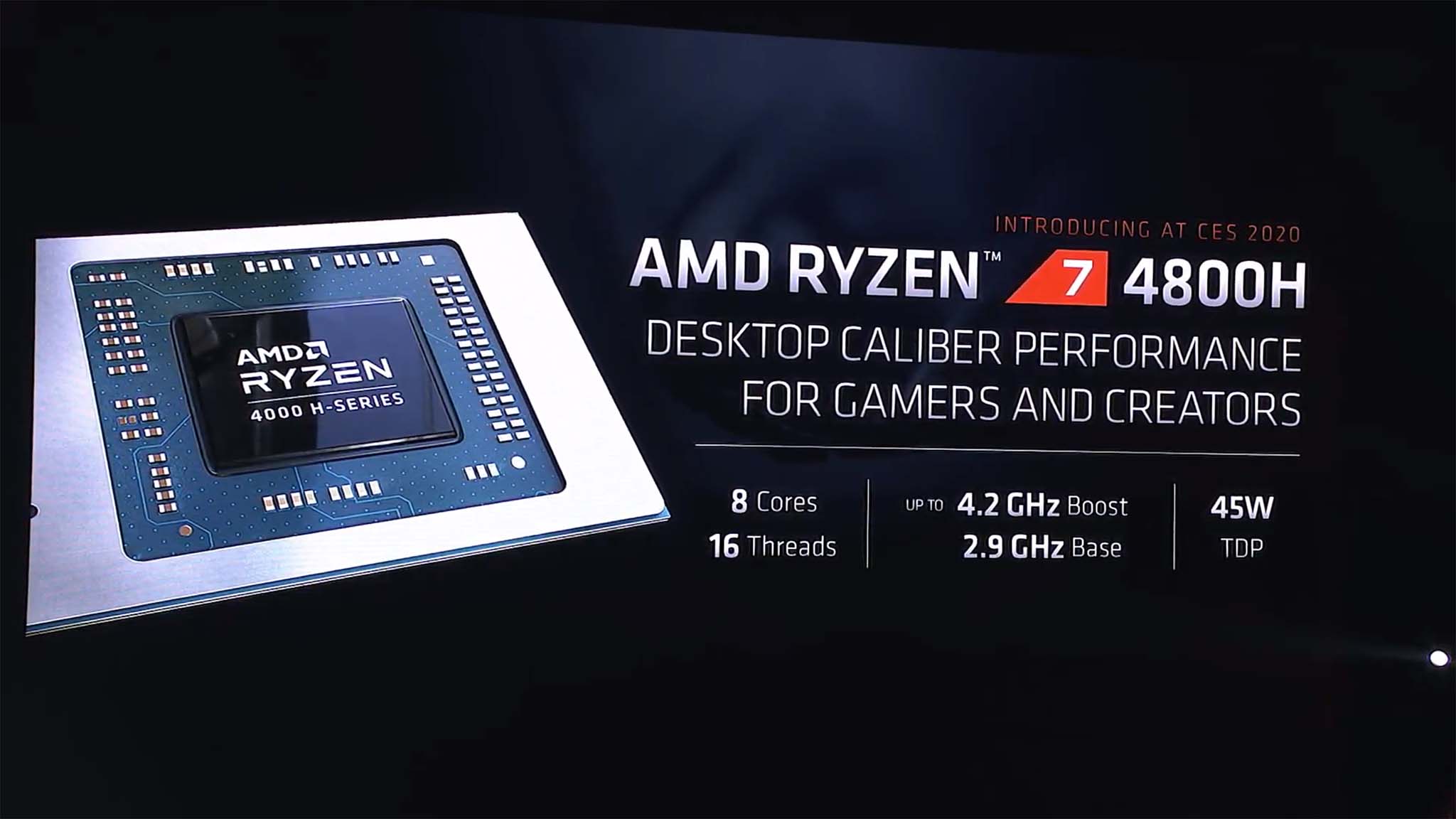
Getting into the Ryzen 7 4000 H-series chips, most people should find that performance is enough for just about any task. They're available in 4800H and 4800HS flavors, both with eight cores and 16 threads. They share the same base and boost clock speeds, Vega 7 integrated graphics, and 12MB cache, though power consumption differs. The 4800H has a 45W TDP, while the 4800HS has a 35W TDP.
These chips are commonly found in rather high-end gaming laptops and, combined with a solid GPU — like something from our collection of best graphics cards — will push high frame rates in most modern games. These CPUs cost more than Ryzen 5 equivalents, but the two extra cores give a big boost to performance.
| CPU | Cores | Threads | Base/Boost clock | Cache | GPU | TDP |
|---|---|---|---|---|---|---|
| Ryzen 7 4800H | 8 | 16 | 2.9GHz (4.2GHz) | 12MB | Vega 7 | 45W |
| Ryzen 7 4800HS | 8 | 16 | 2.9GHz (4.2GHz) | 12MB | Vega 7 | 35W |
Bottom line: Ryzen 7 4000 H-series chips are where most people will draw the line. They offer excellent performance for gaming and design work, and they don't cost as much as the top-tier Ryzen 9 CPUs.
AMD Ryzen 9 4000 H-series CPUs
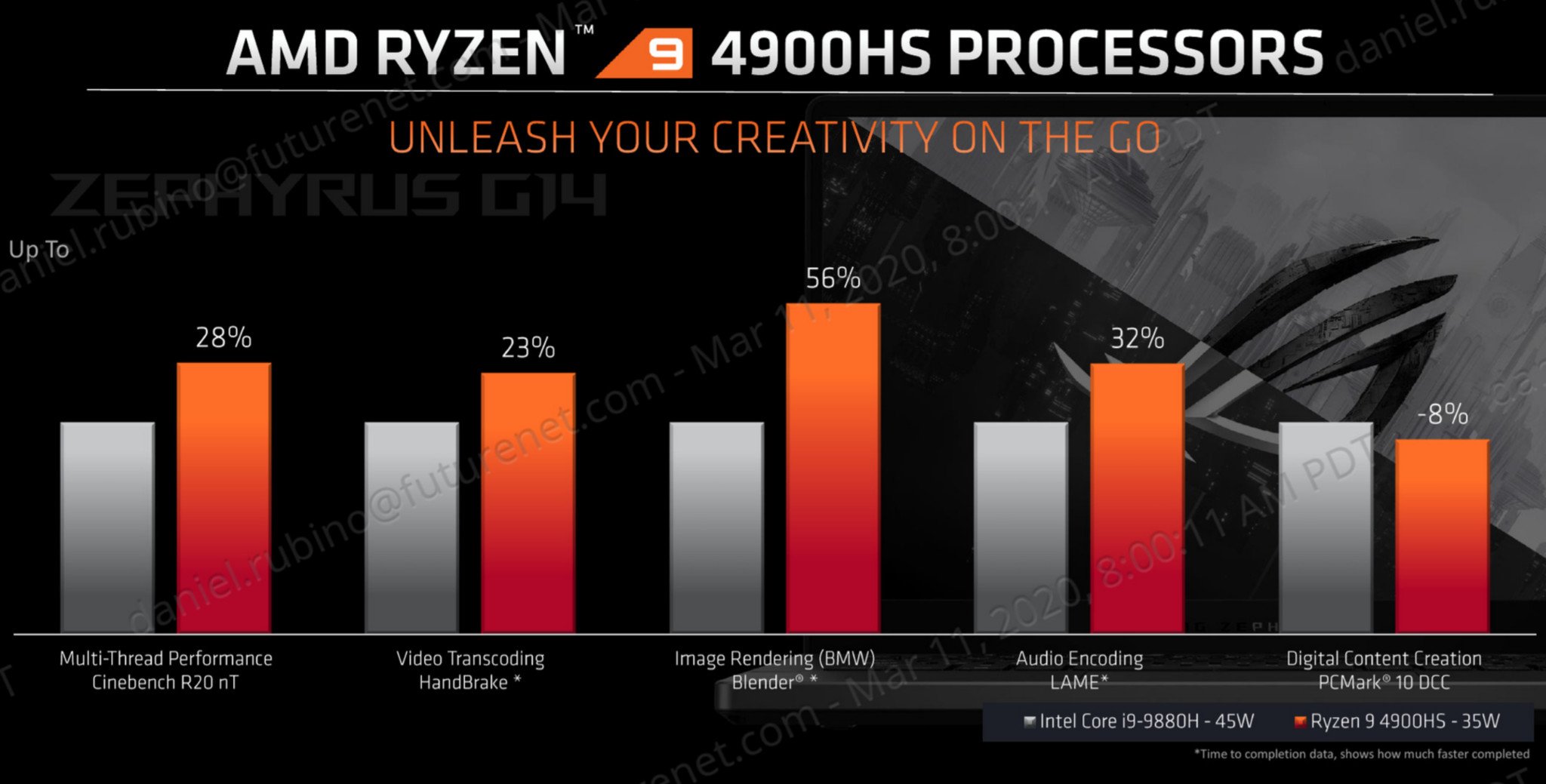
Anyone looking to max out performance in their AMD-powered laptop should look no further than Ryzen 9 H-series hardware. The CPUs come in 4900H and 4900HS versions, both with eight cores and 16 threads, 12MB cache, and Vega 8 integrated graphics. The 4900H has a slightly higher base and boost clock, though it does run at a higher 45W TDP. The 4900HS runs at a lower 35W TDP.
These CPUs come inside high-end gaming laptops like the ASUS ROG Zephyrus G14, providing stellar performance both for fun and for design and creative work. Integrated Vega 8 graphics are excellent, though pairing the CPU up with a dedicated GPU will take it to the next level. For more great AMD-powered laptops, be sure to check out our collection of the best AMD Ryzen laptops.
| CPU | Cores | Threads | Base/Boost clock | Cache | GPU | TDP |
|---|---|---|---|---|---|---|
| Ryzen 9 4900H | 8 | 16 | 3.3GHz (4.4GHz) | 12MB | Vega 8 | 45W |
| Ryzen 9 4900HS | 8 | 16 | 3.0GHz (4.3GHz) | 12MB | Vega 8 | 35W |
Bottom line: Want the most power possible from AMD Ryzen 4000 mobile H-series CPUs? This is the right choice.

Cale Hunt brings to Windows Central more than nine years of experience writing about laptops, PCs, accessories, games, and beyond. If it runs Windows or in some way complements the hardware, there’s a good chance he knows about it, has written about it, or is already busy testing it.

